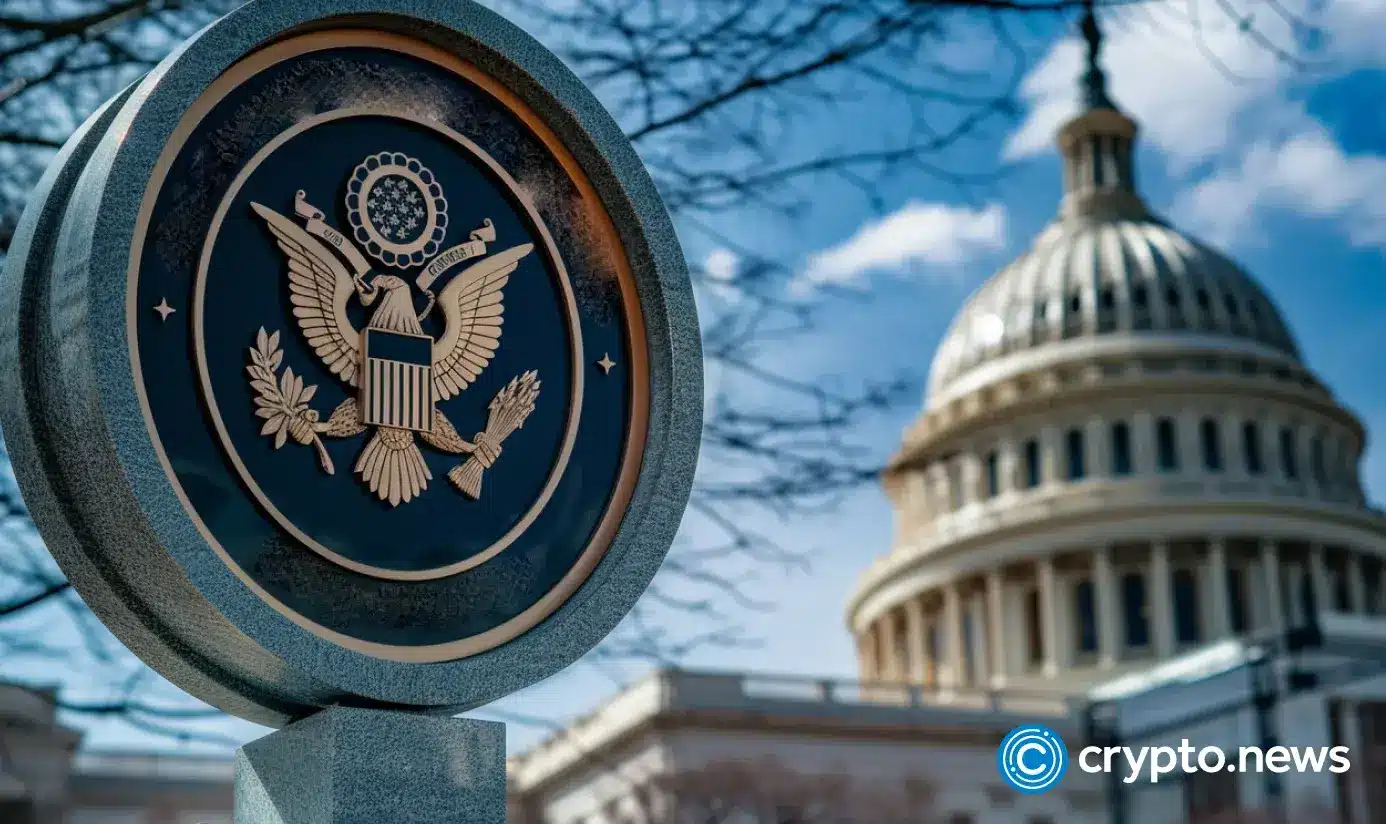crime
Telegram CEO Pavel Durov responds to accusations after indictment
Published
4 months agoon
By
admin

Durov has spoken out for the first time following his arrest last week, defending the platform’s moderation efforts and criticizing authorities for targeting him personally over users’ illegal activities.
Today, nearly a week after the CEO of Telegram, Pavel Durov, was indicted in France, he released a statement addressing his recent legal troubles in the country.
In a post on his official Telegram channel, Durov expressed surprise at his charges, emphasizing that the messaging app has an official EU representative handling law enforcement requests. He criticized the authorities for bypassing established communication channels and questioning him personally.
He argued that pre-smartphone laws to charge a CEO with crimes committed by others on the platform he manages is “a misguided approach.”
Durov defended Telegram’s moderation practices, pointing out the platform’s daily efforts to remove harmful content and maintain hotlines with NGOs for urgent requests.
“We take down millions of harmful posts and channels every day. We publish daily transparency reports… we have direct hotlines with NGOs to process urgent moderation requests faster.”
Durov
Durov emphasized the challenges of balancing privacy and security while maintaining global consistency, particularly in countries with weaker rules of law. He highlighted Telegram’s willingness to leave markets where its principles are compromised, citing bans in Russia and Iran for refusing government demands. He added:
We are prepared to leave markets that aren’t compatible with our principles, because we are not doing this for money. We are driven by the intention to bring good and defend the basic rights of people, particularly in places where these rights are violated.
Durov’s arrest on Aug. 24 sparked a sharp decline in Toncoin (TON), the cryptocurrency linked to Telegram, which plunged 20% around the time of his arrest.
Durov’s charges
Last week, Durov was placed under judicial supervision after being indicted on charges related to inadequate content moderation on Telegram, including accusations of terrorism and drug trafficking. He was arrested at Le Bourget airport near Paris and now faces a court-mandated ban on leaving French territory and twice-weekly police check-ins.
Durov, a Franco-Russian billionaire, has faced legal challenges, with French authorities accusing him of complicity in various illegal activities. He faced 12 alleged charges.
Durov acknowledged that Telegram has a long way to go before being crime-free. Durov expressed that he is committed to improving Telegram’s content moderation efforts, acknowledging some growing pains due to the platform’s rapid user growth.
Telegram’s abrupt increase in user count to 950M caused growing pains that made it easier for criminals to abuse our platform. That’s why I made it my personal goal to ensure we significantly improve things in this regard.
He also reaffirmed the company’s mission to protect user privacy while cooperating with regulators. However, he made it clear that Telegram is willing to exit markets where its values are compromised.
The crypto community was in an uproar over the arrest and strongly supported Durov.
Source link
You may like


5 Tokens Ready For A 20X After Solana ETF Approval


Solana beats Ethereum in a key metric 3 months in a row


SCENE’s 2024 Person of the Year: Iggy Azalea


BTC Risks Falling To $20K If This Happens


Most Layer 2 solutions are still struggling with scalability


Here’s why Stellar Price Could Go Parabolic Soon
crime
Crypto cops record $8.2b in financial remedies for investors: SEC
Published
4 weeks agoon
November 24, 2024By
admin

For all the complaints levied against the crypto-strict U.S. Securities and Exchange Commission (SEC), the agency successfully obtained orders for $8.2 billion in financial remedies for 2024.
This is despite a 26% decrease in total enforcement actions.
The successful prosecution of Terraform Labs helped the agency achieve this milestone. Once a jury verdict found Terraform Labs and founder Do Kwon liable for fraud, defendants agreed to a final judgment ordering them to pay more than $4.5 billion in penalties — the highest amount ever obtained by the SEC following a trial.
It accounted for more than half of the total monetary judgments, according to the details from the press release.
SEC’s 583 enforcement actions
The SEC’s enforcement efforts in 2024 showed significant shifts across multiple categories, with 583 total enforcement actions. This includes 431 stand-alone actions representing a 14% decrease, 93 follow-on administrative proceedings showing a 43% decrease, and 59 delinquent filing actions marking a 51% decline.
Despite the reduced number of cases, the financial impact reached these levels, combining $6.1 billion in disgorgement and prejudgment interest with $2.1 billion in civil penalties.
In the cryptocurrency sector, the SEC pursued several major cases, including charges against Silvergate Capital for misleading BSA/AML compliance disclosures and action against Barnbridge DAO for unregistered securities offerings.
The agency also tackled the HyperFund pyramid scheme involving $1.7 billion and the NovaTech fraud case affecting 200,000 investors. Notable first-time enforcement actions targeted relationship investment scams involving NanoBit and CoinW6 platforms.
The SEC’s Division of Enforcement won all five federal district court cases, including its crypto-related trial against Terraform Labs. This success extended to investor protection measures, with 124 individuals barred from serving as officers and directors of public companies.
SEC Chair Gary Gensler emphasized the Division’s role as a “steadfast cop on the beat,” while Acting Director Sanjay Wadhwa noted increased market participant cooperation and self-reporting.
The report somewhat justifies Gensler’s role as the top crypto enforcer. The outgoing SEC chair, set to resign on Jan. 20, faced harsh criticism from crypto enthusiasts and retail traders throughout his tenure for his regulatory approach.
And yet, the SEC distributed $345 million to harmed investors and processed a record 45,130 tips, complaints, and referrals, including over 24,000 whistleblower tips, resulting in $255 million in whistleblower awards.
The agency’s success in returning funds to investors has been substantial, with more than $2.7 billion distributed since fiscal year 2021.
But most of the actual scams were cyrpto 😬
— sean combs (@William48759211) November 22, 2024
Source link
Canada
Crypto influencer Kevin Mirshahi found dead in Canadian park
Published
1 month agoon
November 14, 2024By
admin

The body of Kevin Mirshahi, a 25-year-old cryptocurrency influencer who had been missing since June, was found dead.
Mirshahi’s body was discovered in Montreal’s Île-de-la-Visitation Park, as confirmed by the Sûreté du Québec, according to the Montreal Gazette.
A passerby came across his decomposing body, prompting an investigation that identified him through an autopsy.
The case, which marks Montreal’s 32nd homicide of 2024, has highlighted a concerning pattern of violence within the crypto community, raising questions about the safety of high-profile figures in the sector.
Timeline of Mirshahi’s disappearance and death
Mirshahi’s disappearance occurred on June 21. Early that morning, he and three others were allegedly abducted from a condo building in Old Montreal.
Montreal police were alerted after receiving a 911 call about a disturbance at a residence near de la Commune and St-Hubert Streets, according to The Gazette.
CRYPTO INFLUENCER FOUND DEAD
Kevin Mirshahi, a Montreal crypto influencer, was discovered in Île-de-la-Visitation park months after a June abduction.
A 32-year-old woman’s facing murder charges, but no ties to his crypto firm “Crypto Paradise Island” confirmed.
Mirshahi’s… pic.twitter.com/tgVq43uwN9
— Mario Nawfal’s Roundtable (@RoundtableSpace) November 14, 2024
While the three other abductees were quickly located, Mirshahi remained missing, prompting police to escalate the investigation to the SQ.
During the initial investigation, police identified Joanie Lepage, a 32-year-old woman from Les Cèdres, Quebec, as a suspect, per The Gazette.
In August, she was arrested and charged with first-degree murder and involvement in Mirshahi’s abduction. Authorities allege that Lepage played a role in concealing Mirshahi’s death, though investigations are ongoing to determine if other suspects may have been involved.
Mirshahi’s background in crypto
Mirshahi was a prominent figure in Montreal’s cryptocurrency scene, primarily due to his management of a private investment firm called “Crypto Paradise Island,” per The Gazette.
His activities in the crypto space attracted public and regulatory scrutiny, particularly from Quebec’s investment authority, the Autorité des Marchés Financiers.
The AMF placed restrictions on Mirshahi in 2021, barring him and two associates from acting as investment advisers or conducting securities transactions. Two weeks after his disappearance, this ban was reinforced in July 2024, limiting his online activities and requiring him to cease promoting related content on social media.
This case isn’t the first crypto-related crime that happened in Canada this month. On Nov. 6, Toronto police investigated the kidnapping of WonderFi CEO Dean Skurka, who was abducted in downtown Toronto and released after a $1 million ransom was paid electronically.
Source link
crime
Tether helps Canadian police recover stolen crypto
Published
1 month agoon
November 9, 2024By
admin

Tether recently assisted the Ontario Provincial Police in recovering $10,000 CAD worth of stolen cryptocurrency.
This recovery was achieved through Tether’s collaboration with the OPP’s Cyber Investigations Team, showcasing the company’s commitment to supporting law enforcement in combating cybercrime.
Tether responded to the OPP’s request by freezing the Tether (USDT) involved in the theft, which allowed the digital assets to be returned to their rightful owner.
Detective Staff Sergeant Addison Hunter of the OPP acknowledged Tether’s voluntary cooperation as essential in recovering the stolen funds, according to Tether’s press release.
Tether has established itself as a partner to law enforcement in tackling cybercrime, claiming it has aided over 195 law enforcement agencies across 48 countries.
Tether also announced on November 8 that it had completed its first funding transaction in a Middle East crude oil investment, expanding the company’s ventures beyond just crypto.
Tether in the hot seat?
Recently, on the United States legal front, Tether denied reports that the company was under investigation for anti-money-laundering and sanctions law violations.
Manhattan prosecutors were reportedly investigating whether Tether’s cryptocurrency had been involved in illegal activities. The U.S. Treasury Department was also said to be considering sanctions on Tether, which could potentially limit American business dealings with the company.
Ceo Paolo Ardoino rejected these claims on X, asserting there was no indication of an investigation and calling the reports “old noise.”
Source link

5 Tokens Ready For A 20X After Solana ETF Approval

Solana beats Ethereum in a key metric 3 months in a row

SCENE’s 2024 Person of the Year: Iggy Azalea

BTC Risks Falling To $20K If This Happens

Most Layer 2 solutions are still struggling with scalability

Here’s why Stellar Price Could Go Parabolic Soon

Perp-Focused HyperLiquid Experiences Record $60M in USDC Net Outflows

Experts say these 3 altcoins will rally 3,000% soon, and XRP isn’t one of them

Robert Kiyosaki Hints At Economic Depression Ahead, What It Means For BTC?

BNB Steadies Above Support: Will Bullish Momentum Return?

Metaplanet makes largest Bitcoin bet, acquires nearly 620 BTC

Tron’s Justin Sun Offloads 50% ETH Holdings, Ethereum Price Crash Imminent?

Investors bet on this $0.0013 token destined to leave Cardano and Shiba Inu behind

End of Altcoin Season? Glassnode Co-Founders Warn Alts in Danger of Lagging Behind After Last Week’s Correction

Can Pi Network Price Triple Before 2024 Ends?
182267361726451435

Why Did Trump Change His Mind on Bitcoin?

Top Crypto News Headlines of The Week

New U.S. president must bring clarity to crypto regulation, analyst says

Will XRP Price Defend $0.5 Support If SEC Decides to Appeal?

Bitcoin Open-Source Development Takes The Stage In Nashville

Ethereum, Solana touch key levels as Bitcoin spikes

Bitcoin 20% Surge In 3 Weeks Teases Record-Breaking Potential

Ethereum Crash A Buying Opportunity? This Whale Thinks So

Shiba Inu Price Slips 4% as 3500% Burn Rate Surge Fails to Halt Correction

Washington financial watchdog warns of scam involving fake crypto ‘professors’

‘Hamster Kombat’ Airdrop Delayed as Pre-Market Trading for Telegram Game Expands

Citigroup Executive Steps Down To Explore Crypto
Mostbet Güvenilir Mi – Casino Bonus 2024

NoOnes Bitcoin Philosophy: Everyone Eats
Trending

 3 months ago
3 months ago182267361726451435

 Donald Trump5 months ago
Donald Trump5 months agoWhy Did Trump Change His Mind on Bitcoin?

 24/7 Cryptocurrency News4 months ago
24/7 Cryptocurrency News4 months agoTop Crypto News Headlines of The Week

 News4 months ago
News4 months agoNew U.S. president must bring clarity to crypto regulation, analyst says

 Price analysis4 months ago
Price analysis4 months agoWill XRP Price Defend $0.5 Support If SEC Decides to Appeal?

 Opinion5 months ago
Opinion5 months agoBitcoin Open-Source Development Takes The Stage In Nashville

 Bitcoin5 months ago
Bitcoin5 months agoEthereum, Solana touch key levels as Bitcoin spikes

 Bitcoin5 months ago
Bitcoin5 months agoBitcoin 20% Surge In 3 Weeks Teases Record-Breaking Potential


